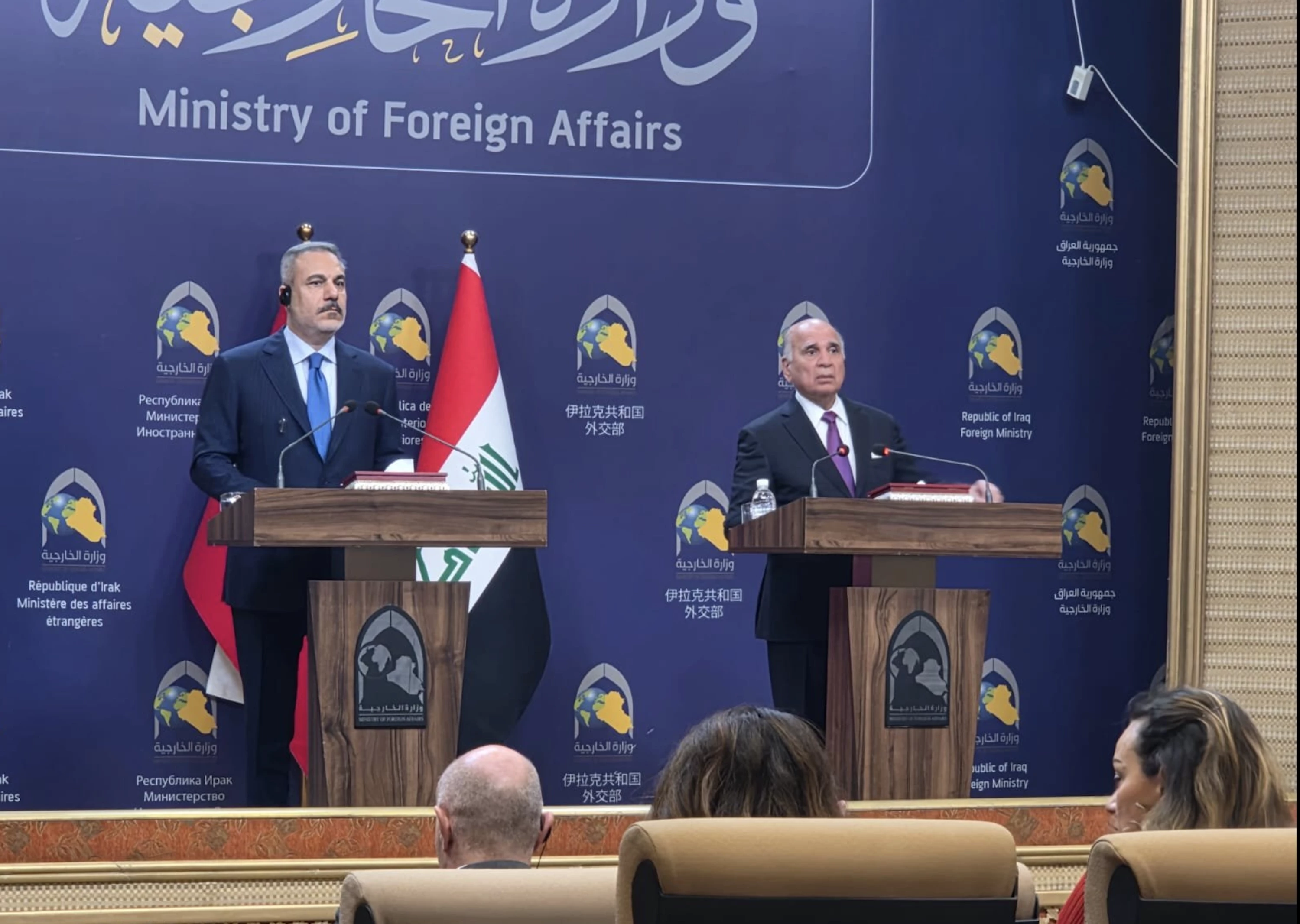ERBIL, Kurdistan Region of Iraq – Iraqi Foreign Minister Fuad Hussein and his Turkish counterpart Hakan Fidan on Sunday announced the signing of a water agreement to address Iraq’s worsening water woes and discussed the latest developments regarding the Kurdistan Workers’ Party (PKK).
Fidan arrived in Baghdad on Sunday, where he held talks with Hussein amid worsening water shortages across Iraq, owing to upstream dams built by Turkey along the Tigris and Euphrates rivers and Iraq’s drought-prone environment.
In a joint presser, Fidan revealed that he discussed “water issues” with his Iraqi counterpart, asserting that the country’s cooperation with Baghdad “must reach the highest levels.”
Hussein announced that Baghdad “will sign a document with Turkey on how to jointly manage water resources," to counter the country’s dire water crisis.
“This agreement we will sign with Iraq is the first of its kind,” and will “pave the way for reforming the water infrastructure,” Fidan said.
Last month, the two officials met in Ankara, where Fidan revealed that a “working committee” has been established between the two states to address the rehabilitation of Iraq's water distribution system, as well as other water-related infrastructure.
Water has been the subject of numerous meetings between Iraqi and Turkish officials in recent years. Around 90 percent of Iraq’s water sources originate from Turkey.
The Green Iraq Observatory, an environmental organization, warned in early September that Turkey’s dam network has drastically reduced Iraq’s water inflows, intensifying an already severe crisis. Turkey has built about 20 dams over four decades, holding roughly 80 billion cubic meters of water, eight times the capacity of Iraq’s Mosul Dam.
The observatory’s report was followed less than a month later by a statement from the Iraqi agricultural ministry, saying that the country’s water reserves have dropped to dangerous levels. The ministry warned that rationing had become essential to protect water security.
In addition to water, Hussein also shed light on the Turkey-PKK peace process, stating that Baghdad supports “the ongoing developments between Turkey and the PKK.”
Fidan also argued that "the organization [PKK] has occupied large swathes of Iraqi territory," adding that the Kurdish group's activities in the region "must end."
“We seek to maintain Iraq’s security and stability,” he stated.
The PKK in May held a landmark conference where it decided to dissolve and disarm upon the call of its jailed leader Abdullah Ocalan in February, followed by a historic disarmament ceremony in July in Sulaimani.
Last week, the PKK issued a historic statement and declared that it is withdrawing “all guerrilla forces” from Turkey to the Medya Defense Areas in the Kurdistan Region, where the group’s headquarters in the Qandil Mountains is located.
A delegation from Turkey’s pro-Kurdish Peoples’ Equality and Democracy Party (DEM Party) – the main mediator of the Ankara-PKK talks – met on Thursday with Turkish President Recep Tayyip Erdogan, reaching a “mutual understanding” on the next steps to advance the peace talks more quickly.
Ocalan and the DEM Party have repeatedly expressed concern over the lack of concrete measures to establish a political framework ensuring the success of the peace process. In October, a senior PKK commander urged Turkey to release Ocalan, who has been imprisoned on Imrali Island since 1999.



 Facebook
Facebook
 LinkedIn
LinkedIn
 Telegram
Telegram
 X
X


